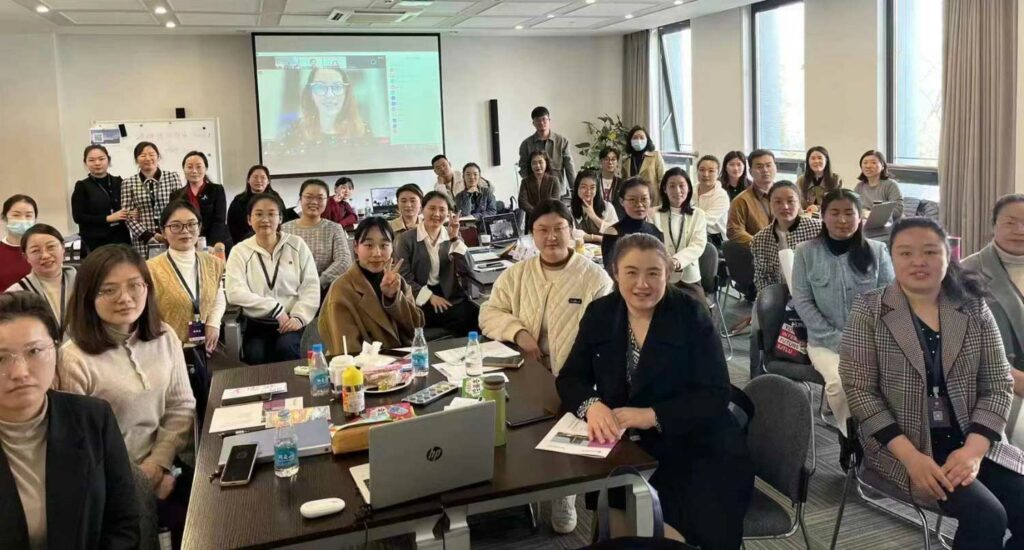
York University's Asian Business and Management Program (ABMP) has developed a highly effective professional development program that was recently delivered by video link to over 270 early childhood education teachers from Jiangsu province, People’s Republic of China. The program, called Kindergarten Learning in Real-Life Contexts Through Play and Inquiry, focused on the role of play-based and inquiry-based learning in children's education. The instructor, Joanne Marie Babalis, who is highly knowledgeable and whose blog is highly acclaimed in early childhood education circles, led seven cohorts of participants who were gathered together face-to-face in a three-hour session. This innovative teaching methodology afforded the attendees the benefit of direct interaction with their fellows and engaging group activities.


The program's learning objectives were to help participants identify play and its role in facilitating learning, describe the categories of children's play, develop intentional play-based learning activities, apply the four stages of inquiry to lesson design and delivery, and plan for play to maximize children's learning. The pedagogical approach adopted by Ontario's Early Years Initiative inspired the program's development, with Ontario's full-day junior and senior kindergarten program serving as a model for play-based and inquiry-based learning.

According to Babalis, the Chinese teachers were already familiar with play-based learning but were relatively new to the inquiry-based method. The program introduced them to the potential of using inquiry projects, which start with a child's curiosity and develop through play and creative experiences, followed by research and sharing findings with the class, parents or the school community. The program curriculum underscored the fact that play provides opportunities for learning in a context in which children are at their most receptive, one in which play and academic work are inextricably linked, and not distinct categories for them. This is why using real-life contexts for activities in an Early Learning program is a highly effective way of motivating young learners. Children grasp ideas more easily and effectively and maintain their interest in school when they can connect their learning to their own lives and the world around them.
Feedback from the participants was exceptionally positive with near universal praise of the program's interactivity, clarity, and the balance of conceptual grounding and practical application. One participant commented that the rich course material, the instructor's extensive experience and the group activity approach created a professional learning atmosphere, while another noted that the modern educational strategies taught would make them more effective in their work.
Elena Caprioni, ABMP program director commented that "The Kindergarten Learning in Real-Life Contexts through Play and Inquiry program was a great success in giving the Chinese teachers a thorough understanding of early childhood education principles as practiced in Ontario, and equipping them with knowledge, tools and techniques that they can use to further enhance their students' learning experiences through play and inquiry. It is a shining example of how education can be used to connect different cultures and promote global understanding."
